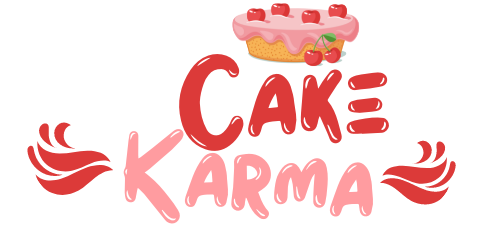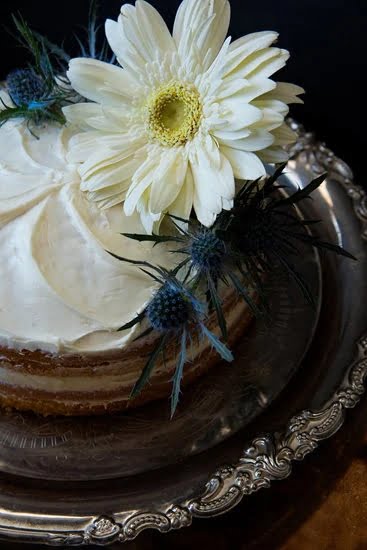Cake decorating has become a highly popular art form, with individuals and businesses seeking beautifully crafted and intricately designed cakes for special occasions. For those who have a passion for cake decorating and a desire to share their skills with others, starting a cake decorating school can be an incredibly rewarding endeavor.
This article will guide you through the process of starting your own cake decorating school, providing valuable insights and step-by-step instructions to help you turn your passion into a profitable business.
The growth and popularity of the cake decorating industry cannot be denied. With social media platforms showcasing stunning creations by talented cake decorators, the demand for professionally designed cakes has skyrocketed. People are increasingly looking for ways to learn these skills themselves or enhance existing ones. This presents an exciting opportunity to start your own cake decorating school and make a meaningful impact on aspiring decorators.
Starting a cake decorating school offers numerous rewards beyond financial gain. Not only do you get to share your love for this art form, but you also have the chance to inspire creativity in others and witness their growth as they develop their own unique styles. Additionally, running a successful school can provide you with flexibility in terms of time and location, allowing you to create a fulfilling career that aligns with your personal goals.
In the following sections, we will delve into the necessary steps involved in starting a cake decorating school. From understanding the market and identifying your niche within the industry to crafting a comprehensive curriculum and effectively marketing your school, this article will provide you with all the information you need to embark on this exciting journey. So let’s explore the art of cake decorating together, uncovering all the secrets to launching your very own successful cake decorating school.
Understanding the Market and Identifying Your Niche
Before starting a cake decorating school, it is crucial to understand the market and identify your niche within the industry. Conducting thorough market research will allow you to assess the demand for cake decorating schools in your area and evaluate the level of competition you may face. This information will then help you make informed decisions about how to position your school and attract your target audience.
To begin, gather data on existing cake decorating schools in your region. Look into their offerings, teaching styles, pricing, and reputation. This will give you valuable insights into what is already available in the market and help you determine how to differentiate yourself from competitors.
In addition to analyzing existing cake decorating schools, it is important to identify your target audience and their specific needs. Consider factors such as age groups, skill levels, and interests when determining who you want to cater to with your school. This will enable you to tailor your curriculum and marketing strategies to meet their requirements effectively.
Once you have a clear understanding of the market and your target audience, choose a specific niche within the cake decorating industry that aligns with your expertise and passions. This could be focusing on a particular style of cake decorating (e.g., fondant or buttercream), specializing in wedding cakes, or offering classes for children or beginners.
By finding a unique niche, you can carve out a distinct identity for your school and attract students who are specifically interested in what you have to offer.
To summarize, conducting market research and identifying your niche are fundamental steps when starting a cake decorating school. By carefully evaluating the demand for such schools in your area, studying competitors’ offerings, targeting specific demographics with tailored curricula and marketing strategies, and finding a unique niche within the industry ensures that you enter the market with confidence.
| Market Research Data | Target Audience Information | Niche Selection |
|---|---|---|
| Analyze competition: offerings, teaching styles, pricing, and reputation | Consider age groups, skill levels, and interests of potential students | Choose a specific focus such as fondant or buttercream decorating |
| Evaluate demand for cake decorating schools in your area | Tailor curriculum and marketing strategies to meet the needs of your target audience | Specialize in wedding cakes or offer classes for children or beginners |
Defining Your Unique Selling Proposition
Developing a distinct brand and positioning strategy for your cake decorating school is crucial in order to set yourself apart from competitors in the market. Your unique selling proposition (USP) is what differentiates your school and attracts potential students. Here are some key steps to define your USP:
- Highlight Your Expertise, Qualifications, and Unique Offerings: Showcase your skills, experience, and qualifications in the field of cake decorating. This could include any awards or recognition you have received, specialized training or certifications you have obtained, or unique techniques you have developed. Additionally, identify any unique offerings that set your school apart from others, such as specialized courses or workshops on specific cake decorating styles or themes.
- Understand Your Target Audience: Conduct thorough research to understand the needs and preferences of your target audience. This can include demographics such as age range, skill level, and interests. By understanding their pain points and desires when it comes to learning cake decorating, you can tailor your offerings and communicate how your school meets those needs in a way that other schools may not.
- Define the Personality of Your Brand: Consider the personality traits that align with your brand image. Are you positioned as a fun and creative school? Or perhaps you pride yourself on being meticulous and detail-oriented? Identifying these traits will help shape not only your branding materials but also how you interact with students and market your school.
| Competition | Number of Schools |
|---|---|
| Local Competitor A | 10 |
| Local Competitor B | 7 |
| Your Cake Decorating School | 1 (Unique Offering: Specialized Courses on Fondant Art) |
Securing the Necessary Resources and Equipment
Once you have identified your target audience and defined your unique selling proposition, it is crucial to secure the necessary resources and equipment for your cake decorating school. Having the right tools and materials will not only ensure a smooth running operation but also contribute to the quality of education you provide.
When it comes to equipment, there are several essential items that you will need to invest in. Firstly, consider tables or workstations for your students to work on. These should be sturdy, spacious, and adjustable to accommodate different heights and preferences.
Additionally, you will need a range of cake decorating tools such as spatulas, piping bags, tips, cutters, molds, rolling pins, turntables, and more. It is important to invest in high-quality tools that will withstand frequent use and properly educate your students on industry-standard equipment.
In addition to equipment, sourcing quality ingredients for your cake decorating school is equally important. Students should have access to fresh ingredients that yield excellent results in their creations. Build relationships with local suppliers who can provide you with a consistent supply of high-quality buttercream, fondant, food coloring gels, flavor extracts, and other baking ingredients.
Considerations for space and facilities should not be overlooked either. A suitable location with ample space for classrooms or workshops is necessary for conducting lessons effectively. Ensure that the space meets safety regulations such as proper ventilation systems and fire exits.
When budgeting for resources and equipment, it is crucial to strike a balance between quality products and affordability. Look for discounts or bulk purchase options from suppliers or explore partnerships with brands that may offer sponsorship or discounted rates. Prioritize investing in tools and materials that align with your chosen niche within the cake decorating industry.
By securing the necessary resources and equipment for your cake decorating school at the outset of your business venture, you set yourself up for success by providing students with excellent learning experiences while maximizing efficiency in your operations.
Crafting a Comprehensive Curriculum
When starting a cake decorating school, one of the most crucial aspects to consider is developing a comprehensive curriculum. A well-structured curriculum will not only ensure that students receive a well-rounded education in cake decorating but also attract potential students with diverse skill levels and interests. Here are some key steps to craft a comprehensive curriculum for your cake decorating school:
- Designing a curriculum that covers both beginner and advanced cake decorating techniques: It is important to provide courses that accommodate students with varying levels of experience and expertise. Begin with foundational courses that cover basic techniques such as icing consistency, piping, and fondant handling for beginners. Gradually progress to more advanced topics like sugar flowers, tiered cakes, and intricate designs for experienced decorators.
- Structuring lesson plans and class formats for different skill levels: Consider the length and frequency of classes based on the complexity of the techniques being taught. Beginners may benefit from shorter classes held more frequently, while advanced students may prefer longer workshops or intensive courses. Break down each course into modules or lessons that build upon each other, allowing students to gradually enhance their skills.
- Incorporating hands-on practice, demonstrations, and theory into the curriculum: A successful cake decorating curriculum strikes a balance between theoretical knowledge and practical application. Provide hands-on practice sessions where students can apply what they’ve learned in class under the guidance of instructors. Additionally, incorporate demonstrations led by experienced decorators to showcase advanced techniques or special designs.
To further enhance the learning experience for your students, consider offering specialization modules within your curriculum. This can include niche areas like wedding cake design, sculpted cakes, or international cake decorating styles. By providing specialized courses or workshops catering to specific interests, you differentiate your school from competitors and attract a wider range of individuals passionate about cake decorating.
By crafting a comprehensive curriculum that caters to various skill levels while incorporating hands-on practice and theory, you establish your cake decorating school as a reputable and valuable educational institution.
Hiring Qualified Instructors
Finding and hiring qualified instructors is a crucial step in establishing a successful cake decorating school. Your instructors play a key role in shaping the learning experience for your students and maintaining the reputation of your school. Here are some important factors to consider when hiring qualified instructors:
- Establishing criteria: Determine the qualifications, skills, and experience you are looking for in potential instructors. Consider factors such as their expertise in cake decorating techniques, teaching experience, industry recognition or awards, and communication skills.
- Conducting interviews: Once you have shortlisted potential candidates, conduct thorough interviews to assess their suitability for the role. Ask questions about their teaching philosophy, previous experience in teaching or mentoring others, and their ability to adapt to different learning styles.
- Vetting potential candidates: Check references and portfolios of candidates to verify their credibility and past performance. Reach out to previous employers or mentors to gain more insights into their teaching abilities and work ethic.
- Ongoing training and professional development: Provide opportunities for professional growth and development for your instructors. This can include attending workshops, conferences or courses to stay updated with the latest trends and techniques in cake decorating.
By hiring qualified instructors who are passionate about cake decorating and have strong teaching abilities, you can ensure that your students receive high-quality instruction that meets their needs and expectations.
In addition to hiring qualified instructors, it is also important to provide ongoing support and training for your teachers. This will help them maintain a high standard of instruction and stay motivated in their roles as educators at your cake decorating school.
Consider implementing regular feedback sessions with instructors where they can share challenges they face in the classroom or ideas for improvement. By fostering open communication, you can create an environment that encourages collaboration among staff members.
Investing in your instructors’ professional development not only benefits them but also enhances the overall reputation of your cake decorating school. It shows that you value continuous growth and improvement within your team, which will attract more talented instructors and raise the bar for excellence within your school.
Overall, hiring qualified instructors and providing ongoing support and training is essential in establishing a reputable cake decorating school that offers a high-quality learning experience for its students.
Marketing and Promoting Your Cake Decorating School
Marketing and promoting your cake decorating school is crucial for attracting students and building a successful business. To effectively reach your target audience, it is important to develop a strategic marketing plan that utilizes various channels and methods.
First, it is essential to define your target audience and understand their preferences and behaviors. This will help you tailor your marketing messages and strategies to effectively reach them. For example, if your target audience consists of aspiring professional bakers, you may want to focus on industry-specific platforms such as baking forums or trade publications.
Utilizing online platforms and social media is a cost-effective way to generate awareness for your cake decorating school. Create an attractive website that showcases your expertise, unique offerings, and testimonials from satisfied students. Use search engine optimization (SEO) techniques to ensure that your website ranks higher in search engine results when people are looking for cake decorating schools.
In addition to having a strong online presence, offline advertising methods can also be effective. Consider placing advertisements in local newspapers or magazines that cater to the baking or culinary community. Sponsor events such as baking competitions or participate in local bridal expos to showcase your skills and build brand recognition.
Forming partnerships with local bakeries, event organizers, and wedding planners can also help promote your cake decorating school. Offer discounts or incentives for their customers who mention your school or provide referral commissions to these businesses in exchange for promoting your classes and workshops.
Lastly, don’t underestimate the power of word-of-mouth marketing. Encourage satisfied students to share their experiences with friends and family members who may be interested in learning cake decorating skills. Offering referral bonuses to current students who bring in new enrollees can incentivize this type of marketing.
Marketing and promoting your cake decorating school will require consistent effort and creativity. By understanding your target audience, utilizing various marketing channels, and leveraging partnerships, you can effectively generate awareness for your school and attract a steady stream of students eager to learn the art of cake decorating.
Setting Up Enrollment Processes and Policies
When starting a cake decorating school, one of the crucial aspects to consider is setting up enrollment processes and policies. This ensures that your school operates smoothly and efficiently, manages student registrations effectively, and provides clarity for both students and staff. In this section, we will explore some important factors to consider when establishing enrollment processes and policies.
Establishing Enrollment Procedures
To begin, you will need to establish clear enrollment procedures for prospective students. This includes creating an application process that outlines the necessary information required from students, such as their contact details and any previous experience in cake decorating. Additionally, consider setting deadlines for applications to ensure a structured enrollment period.
Defining Tuition Fees and Payment Options
Another important aspect of setting up enrollment processes is determining the tuition fees for your cake decorating school. Take into account the costs associated with running the school, including salaries, rent, ingredients, and teaching materials. Conduct market research to understand local pricing standards in the industry to set competitive tuition fees that reflect your unique value proposition.
In addition to tuition fees, provide various payment options for students to make it convenient for them to enroll. Consider offering installment plans or discounts for early bird registrations. This flexibility can attract more students and increase enrollment numbers.
Creating a System for Managing Registrations
Efficiently managing student registrations is essential for a smooth operation of your cake decorating school. Utilize technology tools such as online registration platforms or electronic databases to keep track of student records securely. You can create an online portal where potential students can easily submit their applications and make payments.
Furthermore, establish a system for managing class schedules and attendance tracking. This can be done using software applications that enable easy scheduling of classes, monitoring attendance records, and sending reminders to students about upcoming sessions.
By carefully considering these factors when setting up enrollment processes and policies, you can ensure a seamless experience for both students and staff at your cake decorating school. These measures will help you manage the enrollment process efficiently, attract a steady flow of students, and contribute to the overall success of your school.
Building a Strong Community and Brand Loyalty
Building a strong community and brand loyalty is crucial for the success and sustainability of any cake decorating school. By creating a welcoming and inclusive environment, you can foster a sense of belonging among your students and alumni, leading to long-term loyalty and support for your school. Additionally, encouraging networking, collaboration, and feedback among students and staff can help to build a strong community that contributes to the growth and reputation of your school.
Creating a Welcoming Environment
One of the first steps in building a strong community is creating a welcoming environment for your students. This involves providing a friendly and supportive atmosphere where individuals feel comfortable expressing themselves creatively. You can achieve this by having open communication channels with your students, being responsive to their questions or concerns, and ensuring that all interactions are respectful and inclusive.
In addition to fostering an open environment, it’s important to create opportunities for students to connect with one another. Consider hosting social events such as cake decorating competitions or mixers where students can meet and engage with each other outside of class. Building connections between students can not only enhance their learning experience but also contribute to their long-term satisfaction with your school.
Encouraging Collaboration
Collaboration is essential in the cake decorating industry as it allows individuals to learn from one another, exchange ideas, and inspire creativity. Encouraging collaboration among your students can be done through various means such as group projects or workshops where they can work together towards a common goal. This not only strengthens their technical skills but also fosters a sense of camaraderie within the student community.
It’s also important to establish avenues for collaboration between your instructors and students. For example, you could organize mentorship programs where more advanced students have the opportunity to assist instructors during classes or events. This creates an opportunity for them to refine their skills while also building relationships with instructors who may act as mentors throughout their cake decorating journey.
Fostering Brand Loyalty
To foster brand loyalty, it’s important to engage with your students and alumni beyond their time at the cake decorating school. Offer ongoing education opportunities such as advanced courses or masterclasses that cater to more experienced decorators. By providing these additional learning opportunities, you not only nurture their skills but also demonstrate your commitment to their growth even after graduation.
Additionally, consider hosting exclusive events for alumni where they can reconnect with fellow graduates and network with industry professionals. This can further strengthen their sense of belonging to the community and create a sense of pride in being associated with your brand. Remember to keep in touch with your alumni through newsletters or social media platforms, updating them on school news, upcoming events, and any other relevant information.
Building a strong community and fostering brand loyalty takes time and effort but is crucial for the success of your cake decorating school. By creating a welcoming environment, encouraging collaboration among students, and providing ongoing support for alumni, you can cultivate a loyal following that contributes to the growth and reputation of your school.
Conclusion
Starting a cake decorating school is an exciting and rewarding endeavor for those passionate about the art of cake decorating. By following the steps outlined in this article, you can turn your passion into a profitable business.
Throughout the process, it is crucial to understand the market, define your unique selling proposition, secure necessary resources and equipment, craft a comprehensive curriculum, hire qualified instructors, market and promote your school, set up enrollment processes and policies, and build a strong community and brand loyalty.
By conducting market research and identifying your target audience’s needs, you can ensure that your cake decorating school meets their demands. Differentiating yourself from competitors by developing a distinct brand and positioning strategy will set your school apart in the market. Moreover, creating a welcoming environment for students and fostering brand loyalty through alumni support will contribute to long-term success.
Additionally, marketing plays a vital role in attracting students to your cake decorating school. Utilizing online platforms, social media, local advertising methods as well as forming partnerships with relevant businesses will help generate awareness of your school. Setting up enrollment processes efficiently and establishing clear tuition fees and payment options will make the registration process seamless for both students and staff.
In conclusion, starting a cake decorating school allows you to turn your passion into profit while enhancing creativity and fulfillment in this industry. While many steps are involved in setting up the school successfully, each one contributes to building a strong foundation for growth. Take the leap now and pursue your dreams of sharing your love for cake decorating with others. The possibilities are endless when you combine passion with entrepreneurship.
Frequently Asked Questions
What education do you need for cake decorating?
Cake decorating requires a mix of formal education and hands-on experience. While a specific degree is not mandatory, many aspiring cake decorators choose to pursue culinary arts or baking and pastry programs at reputable institutions. These programs provide a solid foundation in the art of baking, including instruction on techniques, ingredients, and food safety.
Additionally, specialized courses or workshops focused specifically on cake decorating can be incredibly beneficial in honing one’s skills. However, it’s important to note that much of the learning in this field comes from practice and experimentation, as well as keeping up with current trends and techniques through self-study or attending seminars.
What do you need to start a cake decorating business?
Starting a cake decorating business involves more than just having exceptional cake decorating skills. Firstly, you’ll need to obtain any necessary licenses or permits required by your local government for operating a food-based business. It’s also crucial to develop a solid business plan that outlines your target market, competition analysis, pricing strategy, marketing tactics, and financial projections.
Investing in proper equipment like mixers, ovens, piping bags, turntables, molds – along with high-quality ingredients – is essential for producing consistent and professional-looking cakes. Building a portfolio of your work is crucial for attracting clients initially and establishing credibility within the industry. Lastly, developing good relationships with vendors/suppliers for sourcing ingredients and materials can contribute to your success as well.
How long does it take to become a good cake decorator?
Becoming a skilled cake decorator takes time and practice; it’s not something that can be achieved overnight. The length of time it takes to become proficient can vary greatly depending on factors such as individual aptitude, dedication to learning and practicing regularly, access to educational resources/supportive mentors/professional training if desired or available. Typically though, if one pursues formal culinary arts education combined with ample practical experience (including internships or apprenticeships), it may take several years before an aspiring decorator becomes confident in their abilities.
However, continuous improvement is key, and even seasoned professionals in the field will spend years refining their skills and staying abreast of industry trends to maintain an edge. It’s worth noting that finding one’s unique style and voice as a cake decorator is a gradual process that requires patience and creative exploration.

Welcome to our cake decorating blog! My name is Destiny Flores, and I am the proud owner of a cake decorating business named Cake Karma. Our mission is to provide delicious, beautiful cakes for all occasions. We specialize in creating custom cakes that are tailored specifically to each customer’s individual needs and tastes.





